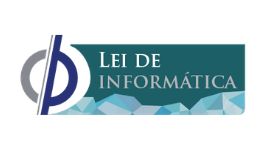Law of Information Technology
The Law of Information Technology (Law No. 8.248 / 1991), created in the early 1990s, is a federal mechanism that aims to stimulate investment in research and development in companies in the technology sector, especially in the areas of hardware and automation.
Initially applied in the form of exemption from IPI`s, the standard underwent an update in December 2019, when Law 13.969, which provides for industrial policy for the information and communication technologies sector and for the semiconductor sector, was approved.
The reformulation comes from the questioning of the World Trade Organization (WTO), which considered the tax policies offered by the promotion programs to be illegal, which would not be in line with the rules of international trade.
With the changes, valid from April 1, 2020, the new tax benefit is now granted through financial credits, which take into account the amount invested in Research, Development and Innovation (RD&I) of the companies and also the billing in products that comply with the basic production process (PPB) rules.
This new model requires investment in RD&I first, before claiming the credit, which can be deducted in federal taxes. The validity date of the Law, December 31, 2029, as well as the regional distribution and the gradual reduction of investment in R&D, did not change, as foreseen in the legislation.
The Informatics Law was responsible for the consolidation of the ELDORADO Institute on the national scene, with regard to R&D. The Institute is accredited by the Information Technology Area Committee (CATI), which enables it to raise and invest these resources in RD&I projects.
The graph below shows how R&D resources should be applied and how ELDORADO can use them, either as an executor or as a manager:

The beneficiary companies must invest 4% in R, D & I, to then have the tax credit.
With the experience in capturing and using these incentives, the ELDORADO Institute offers consultancy and project management for companies from different segments, in which it involves:
– Preparation and monitoring of PPB (Basic Productive Process) Claims;
– Preparation, analysis and monitoring of R&D projects within the scope of the Informatics Law and linked to the partner’s strategy;
– Determination of the R&D obligations resulting from the invoicing of incentive products;
– Preparation and / or review of documents and annual report of accountability, due to the respective development agencies.
Suframa 8.387/91
The Law of Information technology 8.387 / 91 (and amendments) in the Amazon has the prerogative that all companies that produce computer goods and services apply, annually, at least 5% (five percent) of their gross sales in the domestic market. The value is due to the commercialization of the incentive products, in research and development activities to be carried out in the Western Amazon and Amapá.
Since February 2018, ELDORADO has been qualified by the Committee for Research and Development Activities in the Amazon (CAPDA), an organ of the Manaus Free Trade Zone Superintendence linked to the Economy Ministry, to receive resources from theLaw of Information Technology.
The Institute’s main objective is to contribute to the growth of the regional ecosystem through the experience acquired over its 21 years of history.




